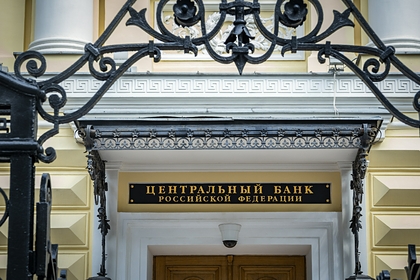Economist Belyaev: the Central Bank's idea of returning money to victims of fraud is laudable, but there are questions 
Ph.D. Mikhail Belyaev, in a conversation with Lenta.ru, praised the initiative of the Central Bank (CB) to introduce a mandatory amount of money back to victims of fraudsters.
In the situation of an increase in the number of frauds, the economist considered the Central Bank's initiative commendable, but indicated that it was especially important the mechanism of its execution, and there are a number of questions to law enforcement, for example, how to identify fraudsters.
“As a rule, fraudsters hide behind various plausible legal grounds, and we see that the court even sometimes finds it difficult to define them as fraudsters. Why? When people fall into these fraudulent schemes, it is often heralded as voluntary actions of the citizen himself. How they were influenced, where was the motivation, it does not matter, it is a legally almost elusive option. It turns out that the person practically voluntarily agreed to participate in this scheme, which means that there can be no legal grounds, “Belyaev said.
The second, and most important question, the economist notes, is where the Central Bank is going to take sources to compensate for the funds stolen by fraudsters. “Even if you catch a fraudster, it turns out that he already has zero balance, and he has no funds. Create some kind of additional fund, like a deposit guarantee fund? But banks first pay for this, form this fund through the Deposit Insurance Agency (DIA), and from it, as from a reservoir, is drawn. Here – where did these funds come from? From the budget, from the DIA, from somewhere else? ” – Belyaev drew attention.
The economist believes that in order to prevent fraudulent transactions, the Central Bank should work closely with law enforcement agencies and strengthen its supervisory functions in order to learn how to recognize and suppress the actions of fraudsters at an early stage. Belyaev also noted that the financial literacy of the population best leads to a significant decrease in the number of fraudulent write-offs. “The Central Bank and the Ministry of Finance, and all involved public organizations need to double and triple their efforts in the field of financial literacy (although they are still considerable) so that the population understands where the fraudulent schemes are,” he concluded.
Earlier it became known about the Central Bank's proposal to amend 161-FZ “On the National Payment System” in order to simplify the procedure for returning funds to citizens who have suffered from a fraudulent transaction in the amount determined by the Bank of Russia. According to the regulator, in the third quarter of 2021, fraudsters stole more than 3.2 billion rubles from clients of Russian banks, which is 18.5 percent more than a year ago. At the same time, banks returned to clients only 7.7 percent of the stolen funds, that is, less than 250 million rubles.